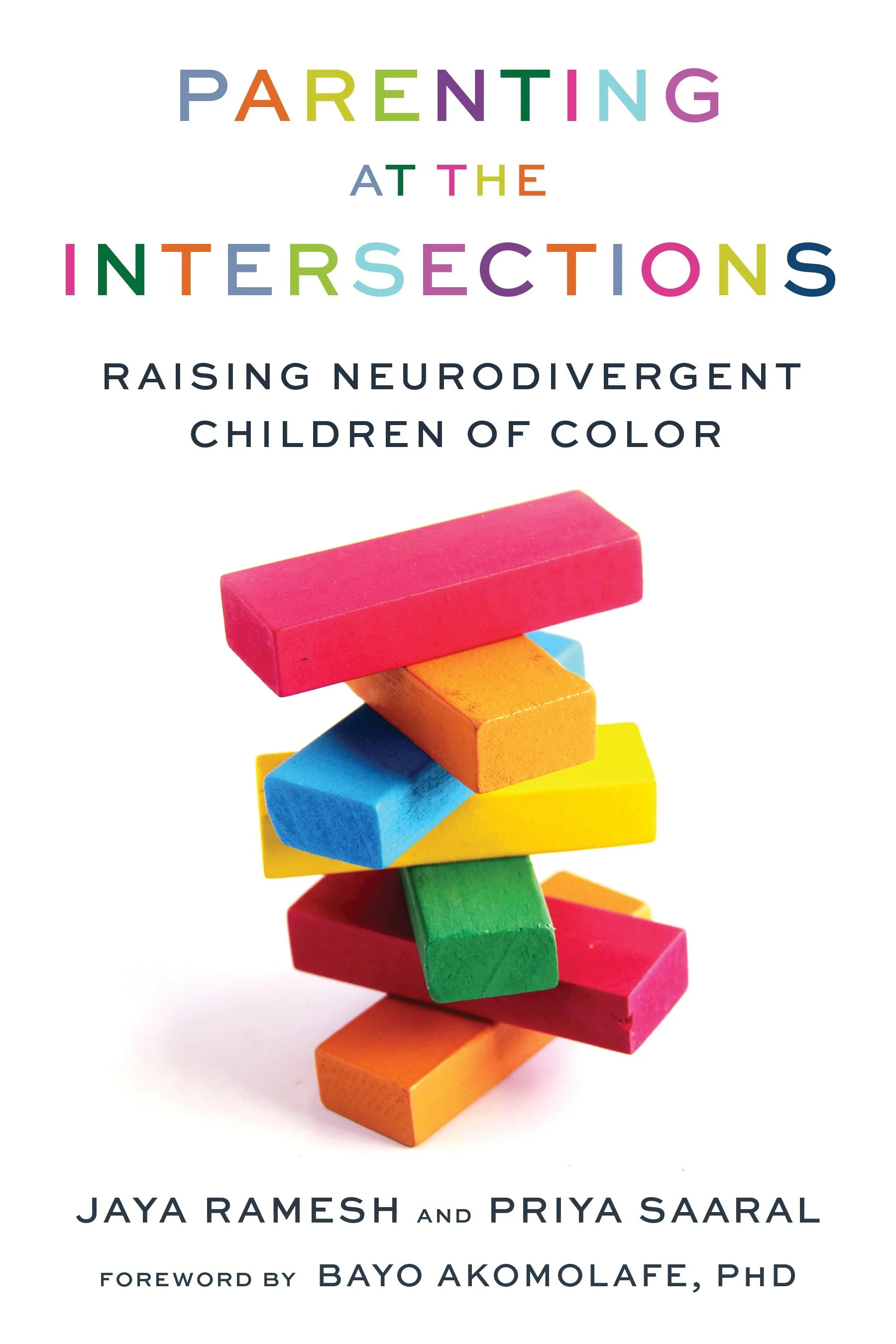
Parenting Book
Available Now!
A part story-telling, part self-inquiry book, Parenting at the Intersections is a love letter to parents of neurodivergent children of color. The authors invite you into a warm and generous space, where many families share their frontline experiences of raising neurodivergent children of color. If you are a parent who is raising a neurodivergent child of color, this book is a soft place to land, to be fully seen and celebrated. With an intimate understanding of the isolation and loneliness that families experience navigating family, schools, doctors, technology etc. this book provides many opportunities for readers to slow down and reflect on their parenting journeys.
By situating parenting in a larger context of various interlocking systems of oppression including settler colonialism, white supremacy, ableism, and capitalism, they gently guide us to understand how none of us parent in a vacuum or were parented in one. And widening the lens on parenting in this way gives us the chance to take a collective breath, and notice that to raise good humans within and against dominating systems of oppression requires the generosity and loving embrace of communities. It is for this reason that this book also invites extended family, doctors, teachers, neighbors, colleagues, and other community members to enter this world. The stories in this book offer an opportunity to understand the struggles and joys of parenting children with these identities. It reminds us that in specificity, there is universality–that liberation for all depends on all of our collective ability to witness.
Email me for collaborations, speaking engagements, and consultations
Beginning with the premise that the “parents of children at the intersection of race and neurodivergence are mapmakers,” Parenting at the Intersections is scrupulously researched yet approachable and intimate, with accounts from parents about their neurodivergent children, as well as their own experiences as neurodivergent children. Reflection prompts and somatic practices resource the reader and foster a sense of spaciousness and curiosity that allows for learning (and unlearning) how to support and advocate for our children and ourselves. Essential reading for the village and educators, social workers, and others in the helping/gatekeeping professions."
Resmaa Menakem, author, My Grandmother’s Hands: Racialized Trauma and the Pathway to Mending our Hearts and Bodies
"This brave and important book fills a crucial gap in the emerging discourse on neurodiversity, casting light on the complex experience of families that live at the intersection of race and conditions like autism, dyslexia, and ADHD. Rather than a glib how-to book of 'advice' for parents, it's the beginning of a dialogue on some of the most challenging and necessary issues of our time." —
Steve Silberman, author, NeuroTribes: The Legacy of Autism and the Future of Neurodiversity
"
